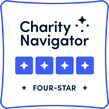New Hope Spot in Panama Champions a Push for a Healthier Environment
February 10, 2020
Featured image by Bocas del Toro Productions
BOCAS DEL TORO ARCHIPELAGO, PANAMA (February 10th, 2020)
Over the last 30 years, Panama’s Bocas del Toro archipelago has gone from an unknown paradise to capturing the hearts of globe-trotting wanderlusters. This small archipelago is home to just 16,000 residents, and in 2012 they hosted 225,000 tourists. Compared to many favorite destinations across the world, this chain of islands is relatively new to the tourism industry – but many locals and conservationists are already feeling the unintended effects of the sharp rise of travelers and accompanying development.

Water conditions surrounding the islands continue to worsen. Sedimentation, eutrophication, hypoxic events and turbidity have impacted the abundance of many coral species and have made conditions difficult for regrowth. Without effective management, garbage and wastewater pose additional threats to these delicate ecosystems. Additionally, increased development puts mangroves in the area at risk. The decline in biodiversity comes at a steep cost: fishermen have reported smaller catches and are having to fish further offshore, significantly impacting their livelihoods. Despite these challenges, local conservation nonprofits and the local government believe there is hope.

“If we don’t get a handle on this now, there won’t be anything left to show people in 20 years,” explains Krista Shoe, Champion of the Bocas del Toro Archipelago Hope Spot and Founder of Mother of Corals.
Shoe, along with several other local ocean conservation organizations, is working to establish sustainable ecotourism as the standard for all tourism in Bocas – a move that will reverse the existing damage and invest in a healthy future for the archipelago and its people.

Mission Blue has declared the Bocas del Toro archipelago a Hope Spot in support of the Bocas Hope Spot Coalition’s goals to develop a training and certification program for eco-friendly tourism leaders, their plans to restore coral reefs and mangrove forests, and their support of an expanded and enforced marine protected area in the region.
Dr. Sylvia Earle says, “Panama’s Bocas del Toro is a stunning pocket of biodiversity, brimming with magnificent creatures like the leatherback sea turtle and brilliant coral – not to mention the immensely valuable mangrove forests. Once human activities destroy the natural ecosystem here, we might not get it back. We have a chance now to do what it takes to keep it intact and invest in a healthy future. I applaud the Champions for working towards a healthy tomorrow, not just for Panama, but the entire ocean.”
95% of the local economy is tourism-based, meaning that almost everyone depends on a steady flow of visitors for survival. Embracing eco-friendly tourism will create not only more job opportunities but a healthier Bocas as well. Ecotourism practices would reduce the stress on the local environment – the land and sea that provide us all with the necessary resources to work and live.

“Tourism in Bocas is not just about our economy, it is also our responsibility to show visitors nature in a sustainable way. Ecotourism is the only tourism that gets us there. Spreading this message is one of the goals of our Hope Spot,” states Sophie Garcia, ecotourism business owner and Hope Spot Coalition member.

The natural environment and idea of “paradise” is what draws many people to the islands. People come to the region from all over the world to experience life in the archipelago and to connect with a region of Panama that is quite different from the rest of the country. Shoe explains, “Tourists want to see the pristine images from social media, and Bocas is in danger of not being able to live up to that online persona.”
Panama’s Bocas del Toro archipelago has long remained one of the world’s best-kept secrets, carrying with it a tale of rich, blended history that marks its uniqueness from the rest of Panama. The archipelago is home to a beautiful mixture of people of Chinese, Ngäbe, Afro-Antillean, Latino and European ancestry. The history of Bocas and the legacy of the building of the Panama Canal and the banana industry of the United Fruit Company have created a very special and unique identity for Bocas. The Ngäbe and Afro-Antillean groups once relied heavily on local fisheries to secure protein. People live directly off of the fish they catch; a way of life deeply intertwined with cultural values and traditions.

The Bocas Hope Spot Coalition believes that education, coral restoration, and mangrove preservation are key elements of healing the local marine ecosystems. Mangroves, particularly the red mangrove (Rhizophora mangle), line the coasts of the majority of islands in the archipelago and even form their own small islands. Mangroves create habitat for many species of invertebrates, fishes and even corals.

“By protecting the mangroves of Bocas, we also protect species of corals and fishes, and support connectivity between habitats that are critical for economically important fisheries,” says Dr. Cinda Scott of The School for Field Studies.
Bocas is a natural wonder, but without a clear plan for tourism, the region’s natural resources will continue to decline, thereby making it difficult to support more tourists in the future. Parts of the archipelago are within the current marine protected area (MPA); however, much of the reefs and mangrove islands fall outside of the demarcation. The current protection isn’t enough – an entire ecosystem-wide management plan needs to be adapted that addresses problems at the source to create and invest in a healthier Bocas for every living being on its islands, now and forever.

About the Bocas Hope Spot Coalition
Caribbean Coral Restoration: formerly known as Coral Restoration Panama, CCR is a non-profit building artificial reefs and re-growing coral to revive the beautiful ecosystems of Bocas del Toro.
The School for Field Studies: the School for Field Studies is the United States’ largest environmental study abroad program provider for undergraduate college students, offering fully accredited semester and summer-long academic programs in 10 countries around the world.
Cacao Blessings: working together with small-scale cacao farms, CB is a social brand that aims to create a socio-economic impact by providing more economic opportunities and education. The project is launching a mangrove reforestation project in 2020.
Mar Alliance: Mar Alliance improves the understanding and conservation of threatened marine species and their habitats, notably sharks and rays on the Mesoamerican reef.
Sea Turtle Conservancy: an international nonprofit organization, Sea Turtle Conservancy was founded in 1959 by world-renowned sea turtle expert Dr. Archie Carr to save sea turtles from eminent extinction through rigorous science-based conservation.
Sophie Garcia: Owner, operator of Kawi Voyage Ecotours and good will ambassador
Martina Alvarez: environmental journalist and good will ambassador








